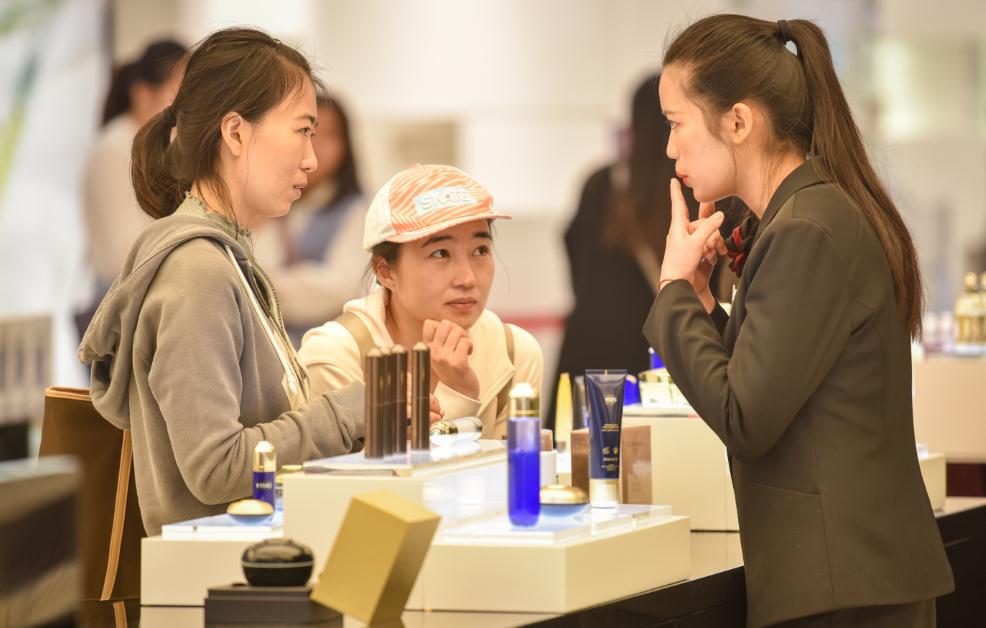

Half of Chinese luxury spending will take place in China rather than traditional overseas locations by 2025, according to global consultancy Bain& Co.
Such purchase repatriation is thanks to a combination of factors like discretionary millennials, a crackdown on the domestic gray market and digital channel promotions in China, Bain said in its annual China Luxury Report released on Tuesday.
"Millennials will continue to be the main driver of the growth of this market in the future, as the average age of luxury consumers is much younger in China than anywhere else in the world … and they value newness more than discounts," said Bruno Lannes, a Shanghai-based partner and author of the report.
Consumers aged 23 to 38 have exhibited a higher willingness to spend on luxury brands. One case in point is that 70 percent of China's millennials own their own homes, Lannes said citing an HSBC survey, a rate twice that of their US counterparts, thus giving them enough financial leeway on discretionary spending.
"This demographic might not always buy the most expensive items, but they shop frequently. That's why it's important to have new collections and apply the fast-fashion playbook," he said.
Meanwhile, Chinese expenditure on luxury goods jumped 20 percent last year, accounting for one-third of the 260-billion-euro ($295 billion) global market, the report said. The rising share of domestic consumption will lead to import duty reductions, stricter control over gray markets and price harmonization in and outside China.
"Today you have enough legitimate platforms inside China to buy authentic products… and that absolutely plays to the strategy of the government and the international brands who have made all the investment here," he said, projecting that growth will reach low-to-mid teens this year.
Meanwhile, digitalization, covering both digital engagements with consumers and sales online, continues to fuel luxury spending in China. Cosmetics led the pack as the top-performing category to achieve over 20 percent of online sales.
Luxury brands are also increasingly allocating a growing share, 60 to 70 percent, of their marketing budget to digital marketing platforms.
For example, e-commerce platform Tmall said it would focus on recruiting more top-notch brands this year, such as Tom Ford Beauty, which is set to launch an official flagship store on the site this year.
"Powered by Tmall's strength in big data, our new boutique gives us reach throughout China without compromising our commitment as a luxury brand," said Natsuko Watanabe, Asia-Pacific regional director at Tom Ford Beauty.
Tmall also created an invite-only option called Maison available to a select group of the world's most-prestigious luxury brands, offering their unique brand stories and innovations, said Lili Chen, general manager of Tmall Luxury Pavilion.
Responsible editor: 胥圣兰WeChat
Subscription
 Scan QR code
Scan QR codeAPP
 Access to
Access to Wechat
Small program
 Scan QR code
Scan QR code weibo
 Scan QR code
Scan QR code